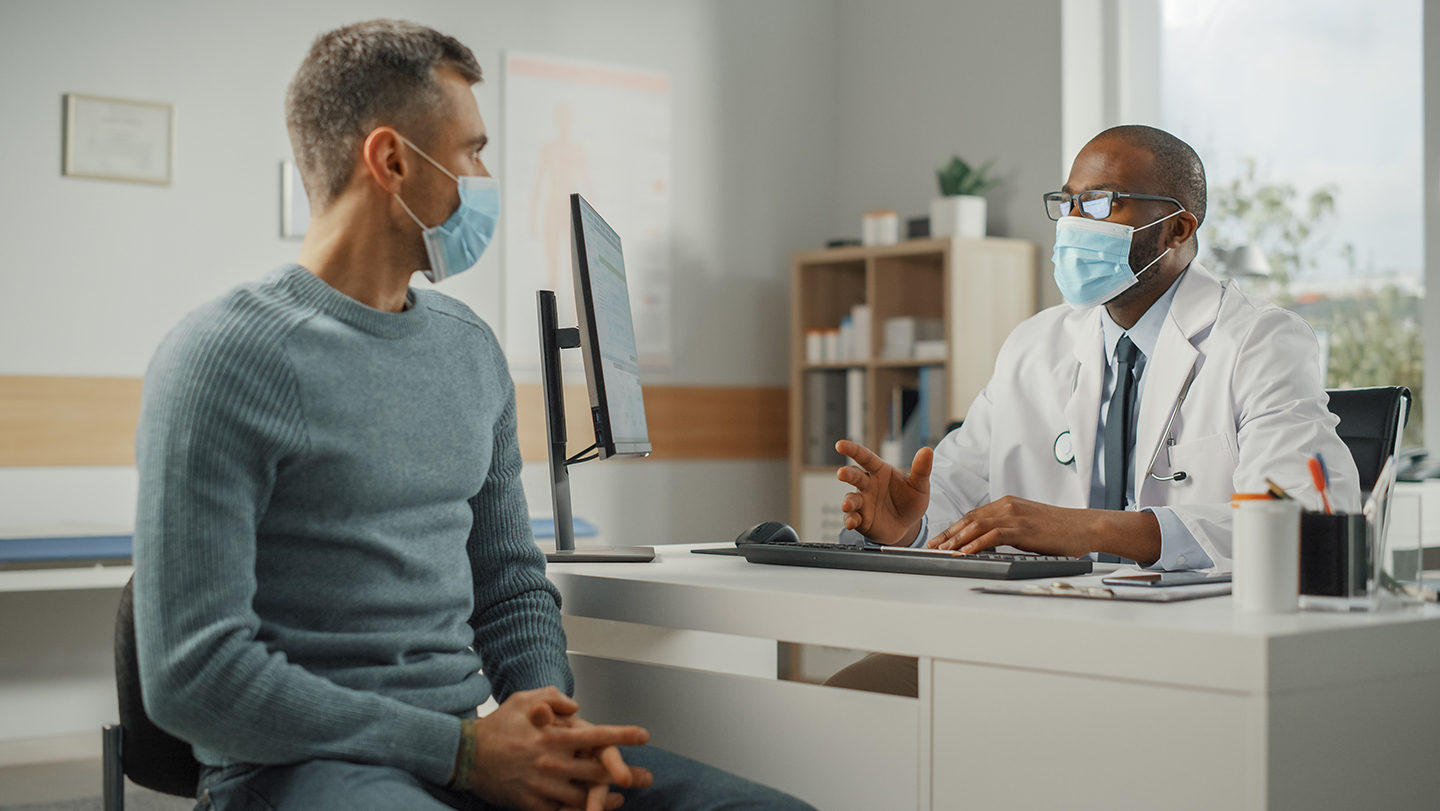
8 Ways to Catch Up on Your Care
At the start of the pandemic, many of us postponed care that wasn’t urgent, like well visits or routine screenings. But now, a year and a half later, catching up is really important. Doctors’ offices have taken many steps to keep you safe, and continuing to delay care could lead to health problems now or down the road.
Not sure what you and your family need? No worries. This list covers the basics for most of our members. It includes care that could prevent problems or find them early, when they’re easier to treat. Many of these services are available at no cost with your BCBSRI health plan. Of course, you’ll want talk with your primary care provider (PCP) about your specific health needs.
1. Schedule your yearly well visit with your PCP.
$0 when you see an in-network provider
If you haven’t seen your PCP in the last year, call today to schedule a well visit. During this appointment, your PCP will give you a physical exam, ask you about your health since your last visit, and review your medications. If you’ve been experiencing any health issues—including depression or anxiety—be sure to write down your symptoms before your visit, as well as any questions you have. Don’t have a PCP? Use our Find a Doctor tool or call Customer Service at (401) 459-5000.
2. Make sure your kids are up-to-date on their well visits and vaccinations.
$0 when your child sees an in-network provider
If you’re not sure if your child has missed a well visit, give their pediatrician a call. During well visits, the pediatrician will screen your child for health issues and track their growth and development. They’ll also vaccinate your child against serious diseases such as measles and mumps. Your child’s school and sports teams may require well-visit forms from your pediatrician.
3. Ask your PCP which preventive cancer screenings you need.
Often $0 when you see an in-network provider
Many types of cancer are "silent," meaning you'll have no symptoms until the disease has advanced and is harder to treat. These screenings can find diseases in earlier, more treatable stages and, in some cases, even help prevent them. Ask your PCP which screenings you need. Here are general guidelines based on age and gender.
- Colon Cancer Screening
Ages 45-75, once every 10 years for a colonoscopy
While a colonoscopy is the “gold standard" for this screening, other options are available, including simple take-home tests. Ask your PCP what they recommend.
- Breast Cancer Screening
Ages 50-74, every two years
The best way to find breast cancer is with a mammogram, which is an X-ray of the breast.
- Cervical Cancer Screening
Ages 21-65, every three to five years
A Pap test can find abnormal cells before they turn into cancer or find cancer in its early stages.
4. See your provider about ongoing health issues, such as diabetes, heart disease, and asthma.
Please see your plan details for coverage.
If diabetes, heart disease, and other health problems are not under control, they can lead to complications and even hospital stays. You may need regular testing, such as an HbA1c test for diabetes, to help you manage your condition.
5. Seek help for mental health or substance use issues—for yourself and your children.
See the comprehensive benefits and services available.
During the pandemic, many of us have experienced stress, anxiety, depression, and substance use issues—but haven’t received the care we need. Treatment can make a tremendous difference. For help finding a provider and other non-emergency issues, call the BCBSRI 24/7 Behavioral Health Line at 1-800-274-2958. In a crisis, please contact BH Link at 401-414-LINK (5465) for adults and 1-855-KID(543)-LINK(5465) for kids under 18.
6. Get a flu shot.
$0 at a participating pharmacy or in-network doctor’s office
The Centers for Disease Control and Prevention recommend that everyone ages six months and older get a flu shot, which can protect against flu complications, including hospitalization. No-cost flu shots will be available starting in September. Find a location.
7. Receive a COVID-19 vaccination.
$0 when received from a pharmacy, vaccination clinic, or other provider approved by the government
The best way to reduce the risk of COVID-19 is to get vaccinated or get a booster shot if you’re eligible. The CDC recommends that everyone ages 6 months and older get a COVID-19 vaccine and that everyone ages 5+ get a booster shot. If you or your child haven’t already received your vaccination, find a location in Rhode Island or your state.
8. Visit your dentist for a cleaning.
$0 with a Blue Cross Dental plan
If your teeth aren’t cleaned regularly, plaque and tartar can build up and lead to cavities, gum disease, or tooth loss. Gum disease may also make other problems, such as diabetes and heart disease, worse. If you don’t have a dental plan, visit bcbsri.com or call 1-855-690-2583.
Prefer a video visit?
Sometimes you can receive care from your provider over the phone or by video. Ask your provider if that is an option for any treatment that you need. You have coverage for clinically appropriate video and phone visits from in-network providers.
This telemedicine coverage is a standard part of your BCBSRI health plan and is in addition to the video visits available through BCBSRI Doctors Online* (if that service is available with your plan). BCBSRI Doctors Online can be used for common, non-emergency health issues 24/7 as well as for scheduled therapy sessions and psychiatry visits.
*Em caso de emergência, deve ligar sempre para o 911. O Doctors Online não se destina a substituir estes serviços e não deve ser usado nessas circunstâncias. O Doctors Online é um serviço de telemedicina fornecido pela American Well®, uma empresa independente que administra o Doctors Online em nome da BCBSRI.
SOURCE: This article was adapted from The Rhode Ahead, the BCBSRI member publication.